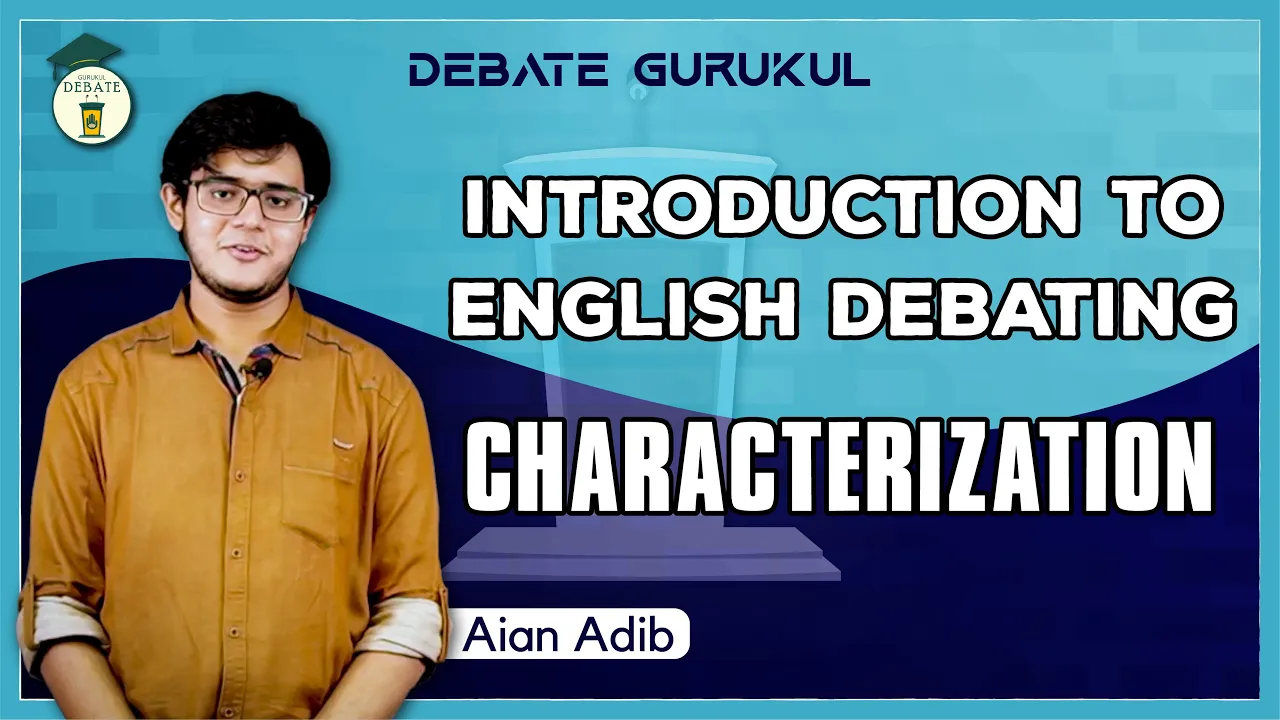Characterization English Debate by English Debate Gurukul. “Characterization” is the topic of today’s video. We are currently publishing a series called “Introduction to English Debating”. “Characterization” is the 13th class of our new series “Introduction to English Debating”. In this series, you will get to know all about English Debating.
Characterization English Debate
British Parliamentary debating is a popular form of debating so we will briefly explain it: There are four teams made up of two speakers each. Two teams are on the government’s side and the other two teams are the opposition but all the teams are trying to win rather than one side. The motion is given 15 minutes before the debate begins and teams are assigned to positions randomly. They alternate their speeches, with the government’s side starting. Speeches are usually 5-7 minutes.

The first two speakers on the government side are called the “opening government” and the first two speakers on the opposition’s side are called the “opening opposition”. The last two speakers on the government’s and opposition’s side are called the “closing government” and “closing opposition” respectively.
The speakers’ roles in the opening half of the debate are similar to the roles of the first and second speakers in the three-against-three debate described previously. The only difference is that the second-opening government and second-opening opposition speakers include summaries at the end of their speeches – this is because they will also be competing with the teams in the closing half of the debate.
The closing government and closing opposition aim to move the debate on but not contradict their side’s opening team. As well as rebuttal, the majority of the third speaker’s time consists of presenting either: new material, new arguments, a new analysis from a different perspective, or extending previously presented arguments. This is called an “extension” which must be something that sets their team apart and makes them unique.
The last two speeches of the closing teams are summary speeches – they summarise the debate and disagreements between the team. Their most important goal is to explain why their side has won the debate. They are not allowed to present new arguments but they can present new evidence and rebuttal.
During the speeches points of information are offered regularly. Speakers should only accept a maximum of two points of information. The first and last minute is protected time where points of information cannot be offered.
Rather than a side trying to win, all the teams are trying to win – this allows different perspectives to be explored. The teams are then ranked 1st to 4th in the debate.
